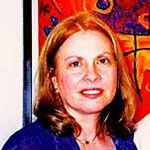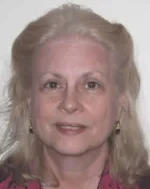- Joined
- May 13, 2010
- Messages
- 5,857
- Reaction score
- 867
- Location
- Los Angels, USA
- Gender
- Male
- Political Leaning
- Slightly Conservative
Carmen is an internationally known storyteller represented in multiple American Folklife Center collections. She has appeared many times at the National Book Festival. She is host of the four-time Emmy-winning children’s program, Love That Book!, and has won numerous awards for her personal stories and children's books:
2008 Best Children's Books of the Year, Bank Street College of Education; Society of School Librarians International Book Awards; Society of School Librarians International Book Awards; Irma Simonton and James H. Black Award for the Best Picture Book of the Year; International Latino Book Awards; Americas Award for Children's and Young Adult Literature.
2009 Children's Book Award, Florida Reading Association; Storytelling World Resource Awards.
2010 Volunteer State Book Awards; Texas Bluebonnet Award.
2011 Texas Bluebonnet Award
2012 Cybil award in the Science Fiction & Fantasy category; Middle Reader Honor Award list; Bluestem Award
2013 EMMY award
2014 Young Hoosier Book Award; Audie Award; Charlie May Simon Children's Book Award; South Dakota Children's Book Awards
2015 Georgia Children’s Book Award Nominnee.
2016 Patricia Gallagher Children's Choice Picture Book Award
2017 Amazon Best Books of the Year; Fanfare 2017 Best Books of the Year for Children and Teens; New York and Chicago Public Libraries Best Books of 2017; Huffington Post Best Picture Books.
2018 Florida Sunshine State Young Readers’ Award Master List; Bank Street College of Education Best Children’s Books of the Year.
2019 Georgia Children’s Book Award Masterlist; Rhode Island Children’s Book Award Masterlist
2022 Best Children's Picture Books of the Year in Spanish
2023 Tejas Star Reading List

2008 Best Children's Books of the Year, Bank Street College of Education; Society of School Librarians International Book Awards; Society of School Librarians International Book Awards; Irma Simonton and James H. Black Award for the Best Picture Book of the Year; International Latino Book Awards; Americas Award for Children's and Young Adult Literature.
2009 Children's Book Award, Florida Reading Association; Storytelling World Resource Awards.
2010 Volunteer State Book Awards; Texas Bluebonnet Award.
2011 Texas Bluebonnet Award
2012 Cybil award in the Science Fiction & Fantasy category; Middle Reader Honor Award list; Bluestem Award
2013 EMMY award
2014 Young Hoosier Book Award; Audie Award; Charlie May Simon Children's Book Award; South Dakota Children's Book Awards
2015 Georgia Children’s Book Award Nominnee.
2016 Patricia Gallagher Children's Choice Picture Book Award
2017 Amazon Best Books of the Year; Fanfare 2017 Best Books of the Year for Children and Teens; New York and Chicago Public Libraries Best Books of 2017; Huffington Post Best Picture Books.
2018 Florida Sunshine State Young Readers’ Award Master List; Bank Street College of Education Best Children’s Books of the Year.
2019 Georgia Children’s Book Award Masterlist; Rhode Island Children’s Book Award Masterlist
2022 Best Children's Picture Books of the Year in Spanish
2023 Tejas Star Reading List









